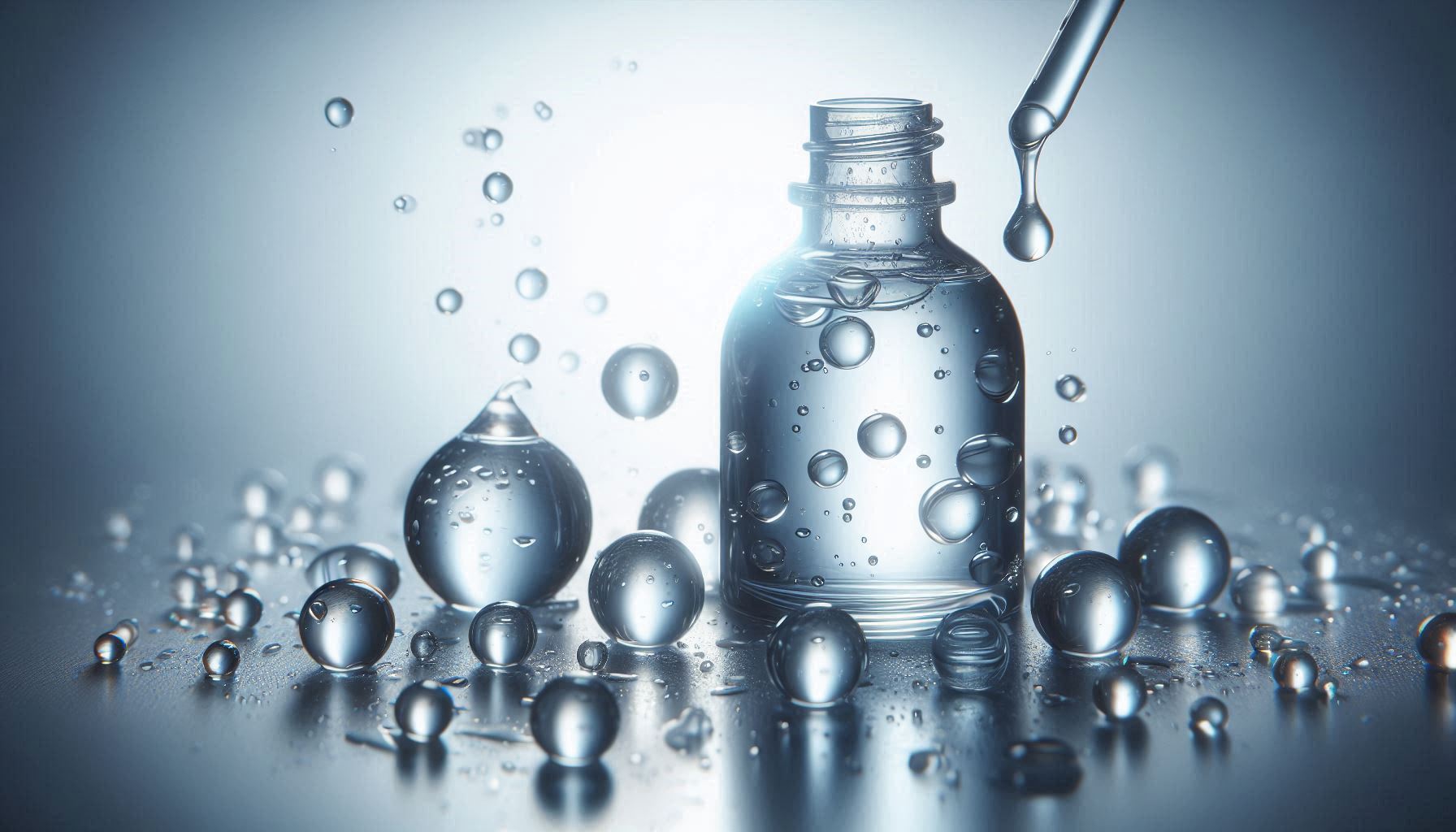
Why do we use Glycerin?
If you look at the ingredient list of almost any hydrating skincare product, you will find Glycerin. It may not sound as trendy as other humectants, but this classic ingredient is arguably the most reliable, effective, and scientifically-backed hydrator in all of cosmetics. As a foundational ingredient in our ingredient philosophy, we believe Glycerin is a non-negotiable for healthy, hydrated skin.
What is Glycerin?
Glycerin (also known as glycerol) is a sugar alcohol that is naturally found in our skin. It is a key component of the skin’s Natural Moisturizing Factor (NMF) and plays a vital role in keeping it hydrated. As a “skin-identical” ingredient, it works in perfect harmony with your skin’s biology.
Its primary function is as a humectant. Humectants act like tiny sponges, pulling water from the atmosphere (and from the deeper layers of your skin) into the outermost layer of the skin, the stratum corneum. This influx of moisture is what keeps your skin feeling soft, plump, and comfortable.
The Good: 3 Key Benefits of Glycerin in Creams
Glycerin is a true multi-tasker that goes far beyond simple moisturization.
1. It’s the Gold Standard of Hydration
This is Glycerin’s primary role. It is incredibly effective at attracting and holding onto water, significantly boosting the skin’s hydration levels. This helps to:
- Instantly relieve feelings of dryness and tightness.
- Plump the skin, which can soften the appearance of fine lines and wrinkles.
- Give the skin a healthy, dewy glow.
2. It Strengthens and Repairs the Skin Barrier
Proper skin hydration is essential for a healthy skin barrier. Glycerin does more than just provide moisture; it also helps skin cells mature properly and supports the function of aquaporins (the water channels in your skin). A well-functioning barrier is better at keeping moisture locked in and defending against external irritants. This is why it works so well alongside barrier-supporting emollients like Shea Butter.
3. It’s Universally Gentle and Effective
Because Glycerin is a natural part of our skin, it is extremely well-tolerated by all skin types, including the most sensitive. It is non-allergenic and non-comedogenic, meaning it will not clog pores, making it an excellent choice for oily and acne-prone skin that still needs hydration.
The Bad: Are There Any Considerations?
Glycerin is one of the safest and most non-controversial ingredients in skincare. The “cons” are less about the ingredient itself and more about perception and formulation.
- It’s Not “Trendy”: Glycerin is a common, affordable, and foundational ingredient. It sometimes gets overlooked in marketing in favor of newer, more exotic-sounding hydrators, even though it often outperforms them in scientific studies.
- The “Stickiness” Factor: In very high concentrations (above 10-15%) on its own, glycerin can feel sticky on the skin. However, in a well-formulated cosmetic cream, it is used at an effective concentration that feels elegant and hydrating, not tacky.
- It’s a Team Player: Like other humectants such as Sodium PCA, Glycerin works best when formulated with other ingredients. It pulls water in, and emollient/occlusive ingredients help to lock that moisture in place.
The Verdict
Glycerin is a true hero ingredient. It is a safe, reliable, and scientifically-proven powerhouse for hydrating the skin and supporting a healthy barrier. Its gentle, non-comedogenic nature makes it a perfect choice for every single skin type. When you see it in our products, you can be confident it’s there to provide foundational, gold-standard hydration.
Primary Article Sources
- National Institutes of Health (PubMed Central): Glycerine: A basic but effective tool for dermatology – This 2016 review in the Indian Journal of Dermatology details the many roles of glycerin, from humectant to barrier repair agent.
- PubMed: An updated review of the multifunctional cosmetic ingredient glycerine – This 2023 abstract for a review in the Journal of Cosmetic Dermatology confirms Glycerin’s status as a premier, multi-functional cosmetic ingredient.
Other sources used for this article
Frequently Asked Questions about Glycerin
Yes, glycerin is excellent for oily and acne-prone skin. It is a humectant, which means it provides water-based hydration without adding oil. It is also non-comedogenic, so it will not clog pores. Hydrating oily skin properly can help prevent it from over-producing its own oil.
Neither is “better”—they are both fantastic humectants that work well together. Hyaluronic acid is famous for holding up to 1000 times its weight in water, creating a gel-like cushion of hydration. Glycerin is a smaller molecule that can penetrate the skin’s surface to provide hydration from within. A good formula often includes both.
Glycerin is a master hydrator. It pulls moisture into the top layer of your skin, leaving it feeling soft, plump, and supple. It also helps to strengthen the skin’s protective barrier, making it more resilient and reducing moisture loss.
Find Glycerin in Our Products
(will be updated soon)
